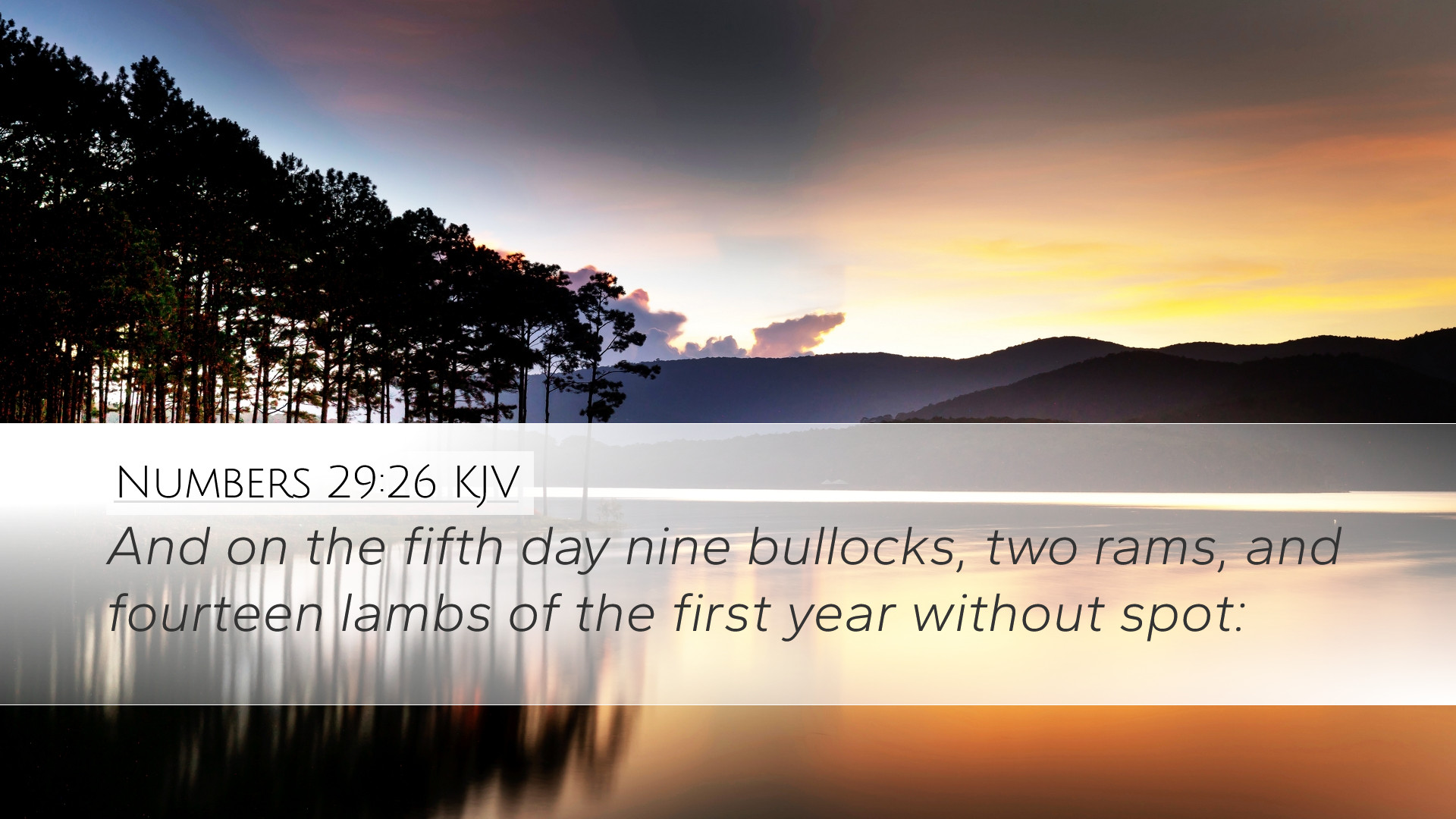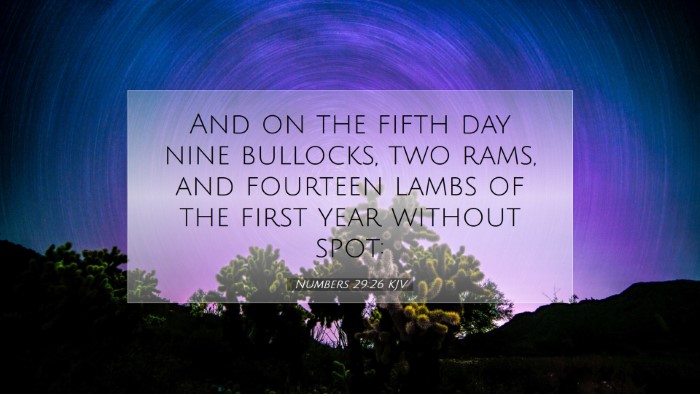Commentary on Numbers 29:26
Bible Verse: "And on the fifth day nine bullocks, two rams, and fourteen lambs of the first year without spot:" (Numbers 29:26)
Introduction
Numbers 29:26 is situated within the context of the detailed sacrifices commanded to be made during the Feast of Tabernacles. This chapter emphasizes the importance of sacrificial offerings and the observance of feasts as a means of worship and expression of gratitude towards God.
General Context
The Book of Numbers serves to chronicle the journey of the Israelites from Sinai towards the Promised Land. This particular passage addresses the ceremonial aspects associated with the great festivals ordained for the Israelites. The meticulous detailing of the sacrifices underscores the gravity of worship and the necessity of obedience in approaching God.
Theological Significance of Sacrifices
The sacrificial system in the Old Testament, particularly noted in this passage, is foundational to understanding God's holiness and the need for atonement. As Adam Clarke notes, the rituals were not merely for ritual's sake but were deeply interwoven with the covenant relationship between God and Israel.
Specific Offerings on the Fifth Day
- Nine Bullocks: The number of bullocks emphasizes the significance of sin offerings. Bullocks were used in the most important of offerings, symbolizing the strength and power of sacrifice in making atonement for sin.
- Two Rams: The inclusion of rams represents a consecration of leadership and ambassadors of the covenant community. Albert Barnes mentions that rams were often linked to the acknowledgment of God’s sovereignty and dominion.
- Fourteen Lambs: The lambs denote innocence and purity, embodying the ideal sacrifice acceptable to God. As Matthew Henry reflects, the sufficiency of the lamb signifies the need for perfect sacrifice in approaching God.
Interpretative Insights
In discussing the sacrificial system, Clarke also points out that these animals represent various aspects of Christ’s atonement. Each offering, from the might of the bullocks to the innocence of the lambs, collectively foreshadows the perfect sacrifice of Christ on the cross.
The Importance of Preparation
The preparation for such sacrifices indicates the seriousness of worship. The Israelites were called to be detail-oriented in their approach to God, a concept that still resonates with today’s worship practices. Worship is to be done with reverence and sincerity, reflecting the sacredness of the relationship with God.
Collective Spiritual Responsibility
The communal aspect of these sacrifices serves as a reminder that worship is a collective responsibility among God’s people. The sacrifices mentioned in Numbers 29:26 are not offered by individuals, but as a community, reflecting unity and shared accountability to God.
Conclusions and Applications
In summation, Numbers 29:26 provides rich insights into the nature of biblical worship through sacrifice. It teaches modern believers about the seriousness of sin, the necessity of atonement, and the importance of collective worship. As pastors and theologians study these passages, they should encourage congregations to view worship not just as an event, but as a profound experience of communal obedience and divine connection.
Practical Takeaways
- Attention to Detail: Worship should engage both the heart and mind, prompting believers to bring their best to God.
- Understanding Atonement: A deep appreciation for Christ's sacrifice can enhance the worship experience and deepen faith.
- Encouraging Unity: Church leaders should foster a sense of community in worship, highlighting shared beliefs and practices.
Final Thoughts
As we reflect on Numbers 29:26, let us remember that worship extends beyond the rituals. It is about the posture of our hearts before God, the acknowledgment of His sovereignty, and the collective commitment to uphold His commandments.


